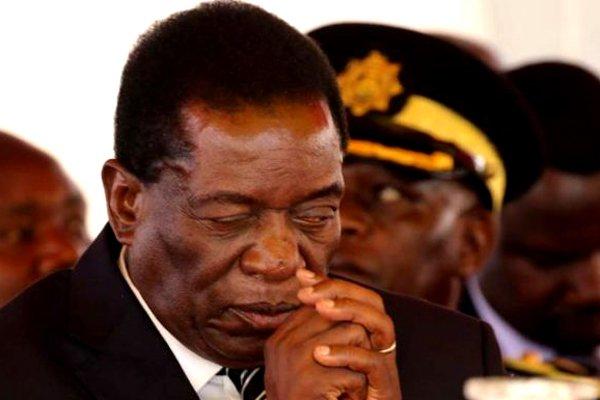News / National
Mnangagwa pardons former judge Paradza
26 May 2025 at 08:44hrs | Views

President Emmerson Mnangagwa has officially pardoned former High Court judge Benjamin Paradza, who was convicted of corruption in 2006. Paradza holds the distinction of being the first sitting judge in Zimbabwe's history to be arrested and charged with corruption.
Paradza's arrest in February 2003 shocked the nation and sparked widespread debate. He was accused of attempting to influence fellow judges to release the passport of a white business associate facing murder charges, enabling the associate to travel abroad.
Justice Simpson Mutambanengwe, recalled from Namibia to oversee the sensitive trial, found Paradza guilty on two counts under the Prevention of Corruption Act, the Criminal Procedure Act, and the Evidence Act. Paradza was, however, acquitted on two further charges of attempting to defeat the course of justice.
The presidential pardon, issued under Clemency Order No 1 of 2025, was officially announced in Government Notice 1041 of 2025 by Justice, Legal and Parliamentary Affairs Minister Ziyambi Ziyambi.
"It is hereby notified that His Excellency, the President has, in terms of section 112(1)(a) and (b) of the Constitution, made an order granting pardon for Mr Benjamin Paradza in respect of his conviction on two counts of corruption by the High Court of Zimbabwe sitting in Harare on January 9, 2006," the notice stated.
The controversial case arose when Paradza approached two fellow judges to alter bail conditions for his business colleague involved in a murder case. Unknown to him, one judge reported the approach to the police, triggering the arrest and trial.
Paradza's prosecution stirred controversy within Zimbabwe's judiciary and legal circles. Fellow judges refused to preside over the case, necessitating the recall of Justice Mutambanengwe from Namibia.
The arrest of a sitting judge led to an international outcry and concern over judicial independence. Some Zimbabwean judges and legal organizations suggested the charges might have been retaliation for Paradza's rulings, particularly his February 2002 judgment declaring eviction orders served on white farmers illegal.
Paradza's pardon marks a significant moment in Zimbabwe's judicial history, closing a chapter that highlighted tensions between the judiciary and the government during a turbulent period.
Paradza's arrest in February 2003 shocked the nation and sparked widespread debate. He was accused of attempting to influence fellow judges to release the passport of a white business associate facing murder charges, enabling the associate to travel abroad.
Justice Simpson Mutambanengwe, recalled from Namibia to oversee the sensitive trial, found Paradza guilty on two counts under the Prevention of Corruption Act, the Criminal Procedure Act, and the Evidence Act. Paradza was, however, acquitted on two further charges of attempting to defeat the course of justice.
The presidential pardon, issued under Clemency Order No 1 of 2025, was officially announced in Government Notice 1041 of 2025 by Justice, Legal and Parliamentary Affairs Minister Ziyambi Ziyambi.
"It is hereby notified that His Excellency, the President has, in terms of section 112(1)(a) and (b) of the Constitution, made an order granting pardon for Mr Benjamin Paradza in respect of his conviction on two counts of corruption by the High Court of Zimbabwe sitting in Harare on January 9, 2006," the notice stated.
The controversial case arose when Paradza approached two fellow judges to alter bail conditions for his business colleague involved in a murder case. Unknown to him, one judge reported the approach to the police, triggering the arrest and trial.
Paradza's prosecution stirred controversy within Zimbabwe's judiciary and legal circles. Fellow judges refused to preside over the case, necessitating the recall of Justice Mutambanengwe from Namibia.
The arrest of a sitting judge led to an international outcry and concern over judicial independence. Some Zimbabwean judges and legal organizations suggested the charges might have been retaliation for Paradza's rulings, particularly his February 2002 judgment declaring eviction orders served on white farmers illegal.
Paradza's pardon marks a significant moment in Zimbabwe's judicial history, closing a chapter that highlighted tensions between the judiciary and the government during a turbulent period.
Source - The Standard






















